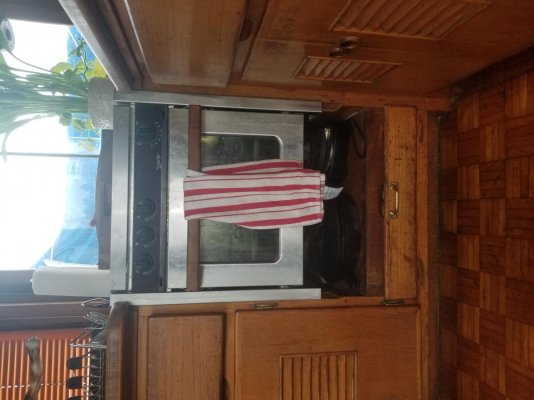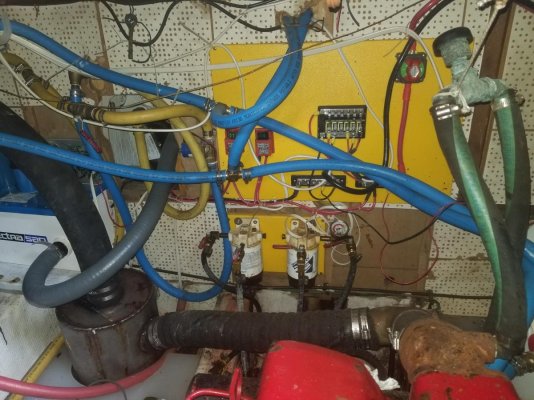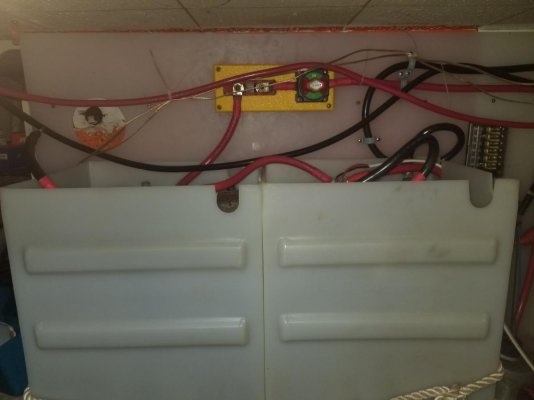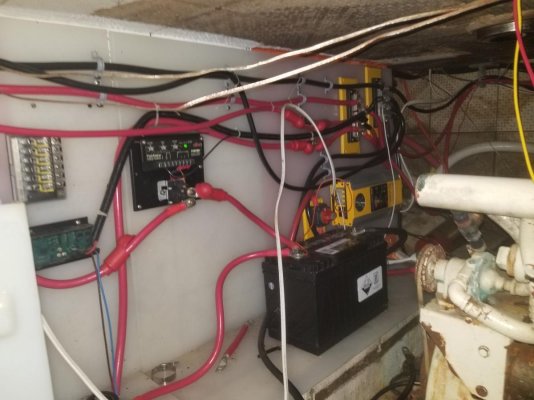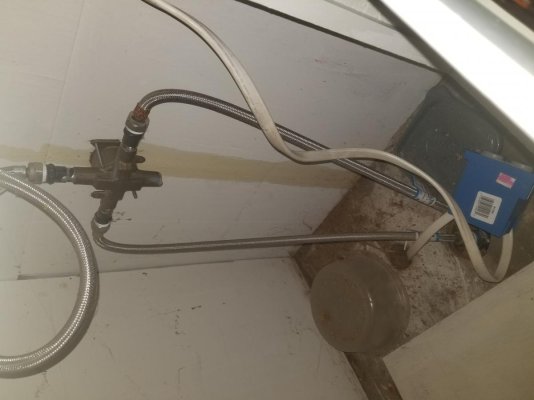Lifeisawave
Member
- Joined
- May 15, 2017
- Messages
- 8
- Location
- USA
- Vessel Name
- Life's a Wave
- Vessel Make
- 1978 Marine Trader
We bought a 1978 Marine Trader Trawler last year. Recently our vape fume detector has started going off. The weather has been getting nicer and it seems to go off more often on hotter days, but that might just be a coincidence.
The problem is that we can't find the vape fume detector. Turning off the shore power and flipping the breakers doesn't stop the alarm. Although turning off the batteries does. That means that it must be hardwired into the battery somewhere. Beyond that, we have no idea where it is or how to fix the problem!
The alarm is definitely coming from our engine room and we've tried following all of the wires down there connected to the battery, but we can't find anything that looks like an alarm. The person who owned the boat before us installed it, so we don't know which one we have or where it's located. I guess that means that there's always the possibility that we've seen it and just don't know what it looks like.
Any suggestions? Because we live on the boat and just turning off the battery isn't exactly an option.
The problem is that we can't find the vape fume detector. Turning off the shore power and flipping the breakers doesn't stop the alarm. Although turning off the batteries does. That means that it must be hardwired into the battery somewhere. Beyond that, we have no idea where it is or how to fix the problem!
The alarm is definitely coming from our engine room and we've tried following all of the wires down there connected to the battery, but we can't find anything that looks like an alarm. The person who owned the boat before us installed it, so we don't know which one we have or where it's located. I guess that means that there's always the possibility that we've seen it and just don't know what it looks like.
Any suggestions? Because we live on the boat and just turning off the battery isn't exactly an option.






